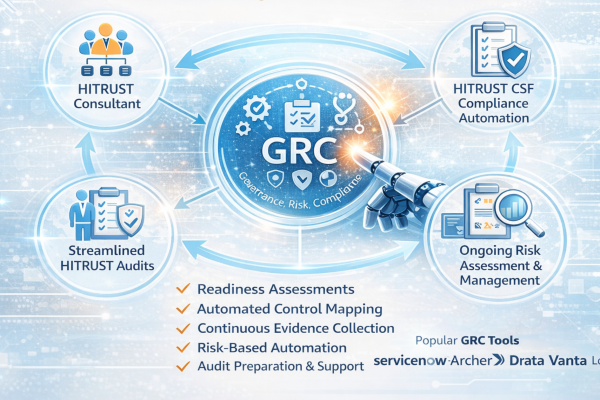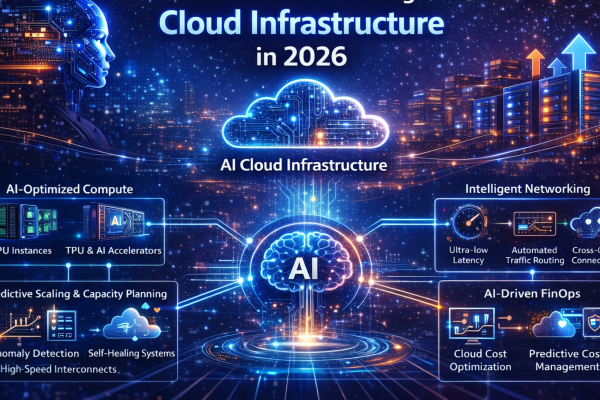Why Cloud Data Migration Services Are the Backbone of AI-Powered Businesses in 2030
In 2030, businesses that thrive are not just those that use AI—they are the ones that harness its full potential through seamless data management. Cloud Data Migration Services have become essential for AI-powered businesses by enabling them to move vast amounts of data quickly, securely, and efficiently. These services are no longer optional; they are foundational to modern AI operations.
Data is the fuel for AI. Without reliable access to data from various sources—legacy systems, on-premises servers, and other cloud platforms—AI algorithms cannot function optimally. Cloud Data Migration Services ensure that businesses can consolidate their data into a unified cloud infrastructure, paving the way for smarter analytics, faster innovation, and real-time decision-making.
The Growing Role of Cloud in AI Adoption
By 2030, nearly every business, regardless of size or industry, will rely on AI in some capacity—be it for automating tasks, personalizing customer experiences, or making predictive decisions. However, for AI to deliver meaningful results, it needs access to clean, structured, and readily available data.
Cloud infrastructure offers the scalability and computing power required for AI, but the real challenge lies in moving data from disparate sources into the cloud efficiently. This is where Cloud Data Migration Services become crucial. These services allow businesses to migrate their critical datasets—structured, unstructured, or semi-structured—into cloud environments where AI models can access and process them in real time.
Why Cloud Data Migration Services Are Mission-Critical in 2030
1. Enabling Real-Time AI Insights
In 2030, real-time decision-making is a competitive advantage. Whether it’s dynamic pricing in e-commerce or predictive maintenance in manufacturing, businesses need to analyze data as it is generated. Cloud Data Migration Services make this possible by ensuring continuous, real-time data flow into cloud-based AI systems.
Without these services, data remains siloed in legacy systems, leading to delays, inefficiencies, and lost opportunities. Migrating data to the cloud ensures that AI tools have immediate access to the latest information, enhancing accuracy and speed in insights.
2. Supporting Scalable AI Workloads
AI models require enormous amounts of data and processing power. Local servers often lack the resources to handle such scale. Cloud platforms, on the other hand, offer virtually unlimited storage and computing capacity.
Cloud Data Migration Services facilitate the seamless movement of data to these scalable platforms. This ensures that AI workloads—ranging from machine learning model training to natural language processing—can scale dynamically based on demand. Businesses no longer face bottlenecks due to limited infrastructure, thanks to efficient cloud data migration.
3. Ensuring Data Consistency and Integrity
AI relies on accurate and consistent data to function effectively. Any corruption or inconsistency in datasets can lead to faulty insights and flawed automation. Cloud Data Migration Services use advanced validation tools to ensure that data integrity is maintained throughout the migration process.
In 2030, with the volume and complexity of data growing exponentially, maintaining data consistency during migration is non-negotiable. Automated tools within these services validate, cleanse, and verify data as it moves to the cloud, ensuring it remains usable for AI applications.
4. Reducing Latency for AI Operations
Low latency is critical for AI-powered applications like autonomous vehicles, smart cities, and healthcare diagnostics. Any delay in data access or processing can have serious consequences. Cloud Data Migration Services help in reducing latency by moving data closer to the AI processing units—often located in edge or cloud data centers.
By ensuring that data is in the right place at the right time, these services improve the responsiveness of AI applications. In 2030, where speed is vital for competitiveness, this reduction in latency can set leading businesses apart.
Improving Data Security and Compliance
In a data-driven world, security and compliance are paramount. AI systems deal with sensitive data—personal information, financial records, intellectual property. Cloud Data Migration Services include robust security protocols to encrypt and protect data during migration.
Moreover, as global regulations around data privacy tighten, these services ensure compliance with standards like GDPR, HIPAA, and emerging AI-specific laws. In 2030, using compliant and secure migration services isn’t just best practice—it’s a legal and reputational necessity.
6. Optimizing Costs for AI Infrastructure
Migrating data to the cloud may seem costly upfront, but it significantly reduces long-term infrastructure and maintenance expenses. Businesses no longer need to invest in expensive on-premises hardware or data centers. Instead, they can leverage pay-as-you-go cloud models.
Cloud Data Migration Services ensure that this transition is smooth and cost-effective. These services analyze existing datasets and only move what’s necessary, reducing storage costs and optimizing cloud resource usage. This is particularly important in 2030 when businesses need to allocate resources wisely to stay competitive.
7. Accelerating AI Innovation Cycles
Innovation in AI depends on how quickly businesses can test new models and iterate. Cloud platforms provide the ideal environment for rapid experimentation, but only if the data is readily available.
By streamlining data transfer, Cloud Data Migration Services allow data scientists and AI engineers to access datasets faster, experiment with models more efficiently, and bring innovations to market quickly. This agility in AI development is crucial in 2030’s fast-paced, tech-driven economy.
8. Facilitating Multi-Cloud and Hybrid Cloud Strategies
Most businesses in 2030 won’t rely on a single cloud provider. Instead, they will use multi-cloud or hybrid cloud setups to avoid vendor lock-in and enhance flexibility. Managing data across these environments requires advanced migration capabilities.
Cloud Data Migration Services support seamless movement of data across different cloud providers and between on-premises and cloud environments. This flexibility ensures that businesses can choose the best cloud solutions for specific AI workloads, optimizing both performance and cost.
9. Enhancing Collaboration Across Teams and Locations
AI projects often involve teams across different departments and geographies. Centralized cloud data enables better collaboration, as teams can access the same datasets and insights regardless of location.
By consolidating data into the cloud, Cloud Data Migration Services eliminate data silos, foster collaboration, and enhance productivity. In 2030’s globalized business landscape, this ability to collaborate in real-time on AI initiatives is a critical success factor.
10. Future-Proofing AI Infrastructure
Technology evolves rapidly. What works today might be obsolete tomorrow. Cloud Data Migration Services provide businesses with the flexibility to adapt. As new AI tools, frameworks, or cloud platforms emerge, these services ensure that data can be moved and integrated without disruption.
By 2030, future-proofing is not just about adopting the latest tech—it’s about building resilient, adaptable infrastructure. Migration services give businesses the agility to evolve alongside AI innovations.
Conclusion
As we look ahead to 2030, AI will continue to transform how businesses operate, compete, and innovate. But AI’s power depends entirely on how effectively businesses manage their data. Cloud Data Migration Services are no longer just technical tools—they are strategic enablers that empower businesses to fully harness AI.
From enabling real-time insights and reducing latency to ensuring security and driving innovation, these services are the backbone of AI-powered enterprises. Businesses that invest in efficient, secure, and scalable data migration will be the ones leading the AI revolution in 2030.
In an era defined by data and intelligence, Cloud Data Migration Services are the bridge between potential and performance. They make AI not just possible, but powerful.
Author







